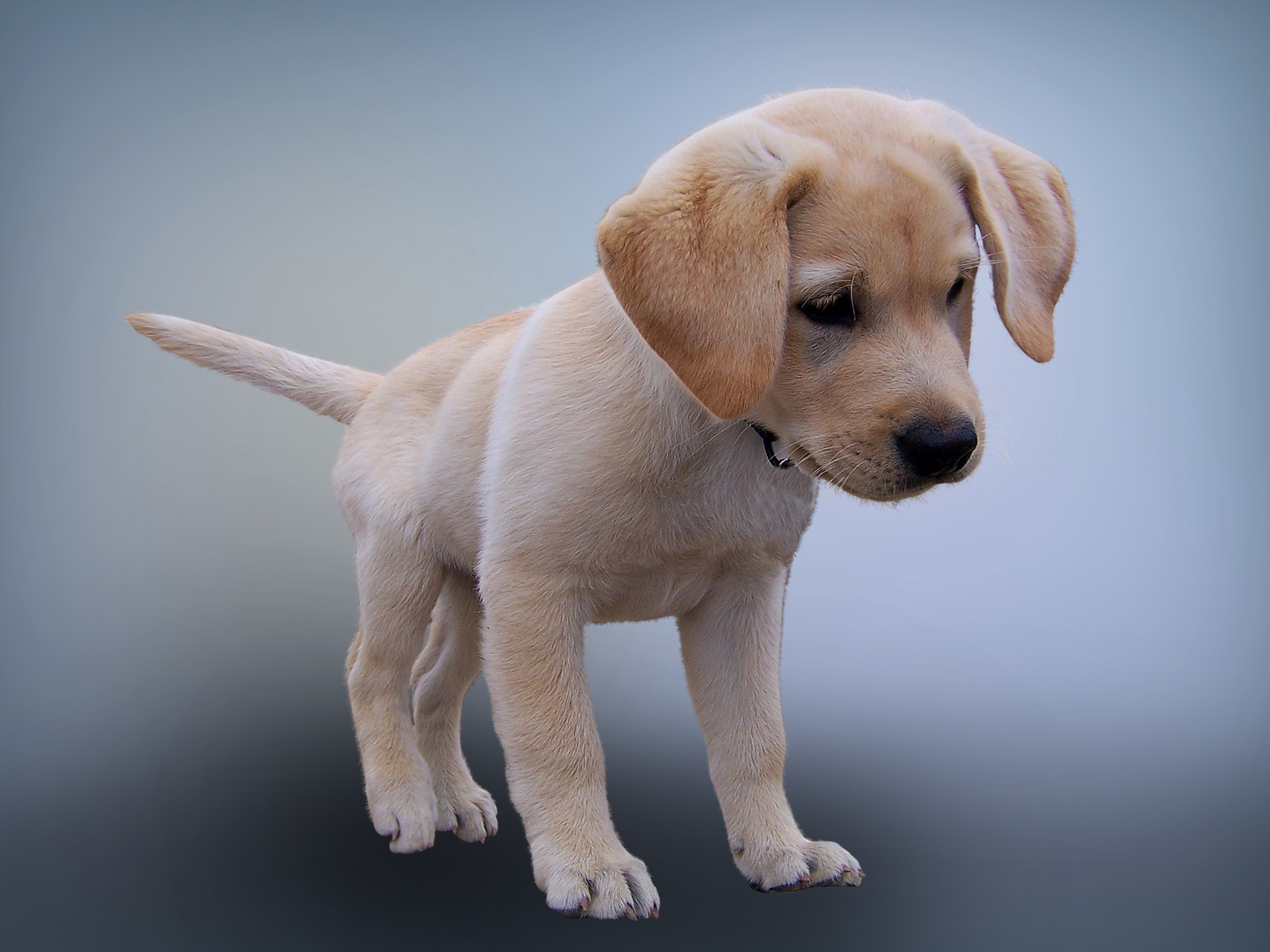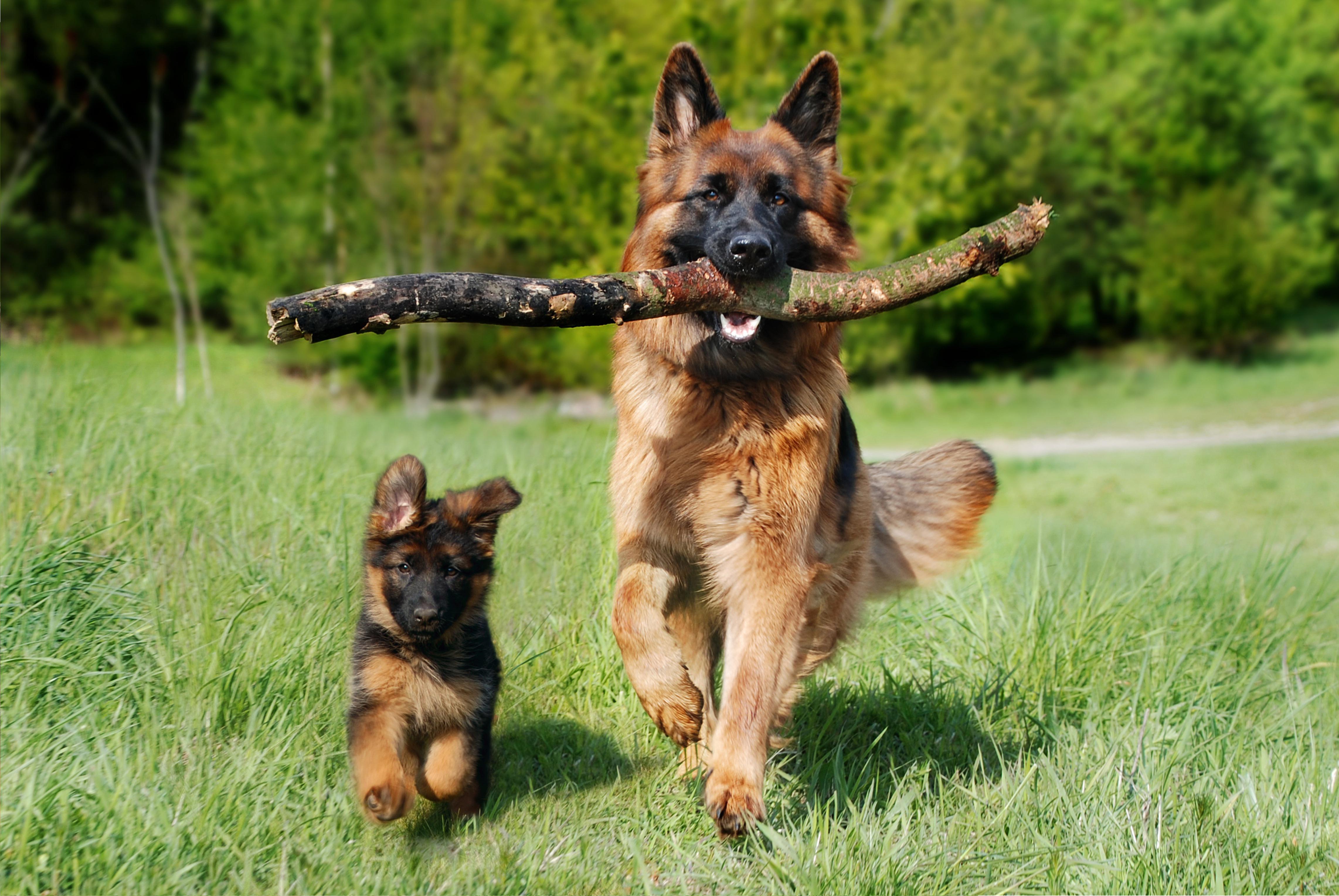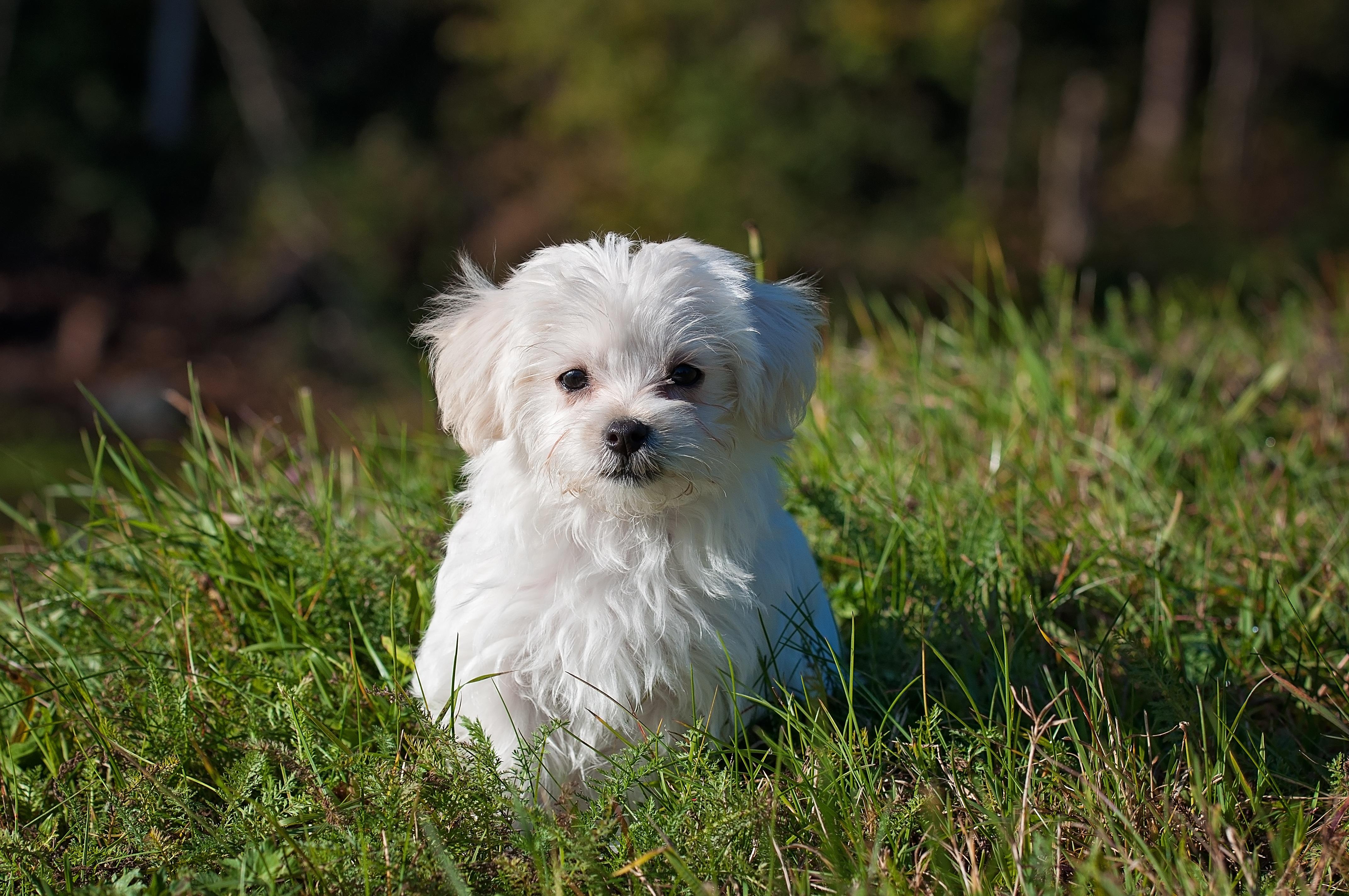Table of Contents
How Many Puppies Can A Dog Have? All You Need To Find Out!
If your dog has puppies soon, you may be wondering how many puppies can a dog have. This can be both scary and exciting at the same time. You want to make sure that both the mother and the puppies are safe and healthy during the delivery.
So, it’s essential to know when your dog is due and how the delivery process works to make sure everything goes well. Let’s find out how many puppies can a dog have:
Typical Dog Litter Sizes
Typical litter size ranges from 1–to 12 puppies. 5–6 puppies are average across all dogs. On the other hand, Giant breeds can have up to 15 puppies. It varies depending on your dog’s species, size, health, and pregnancy history.
Giant breeds frequently have larger litters, whereas small dogs have fewer litters, maybe only a couple. This is because small dog breeds are smaller in size. Your dog may also have fewer puppies the first time it gives birth but will most likely have more puppies with each subsequent pregnancy.
Furthermore, your dog’s health is essential because it influences how many puppies she will have. Proper nutrition for a dog aids in the production of more puppies that will grow and survive the pregnancy process.
Now that you know How many puppies can a dog have, let’s have a closer look at different breeds?
Labrador Retriever Litter Size

Labrador Retriever litters typically have 5 – 10 puppies, depending on size, age, health, food, and genetic diversity. However, a Labrador’s 1st litter is usually smaller than average.
- Largest litter: 15 puppies
- Average litter: 7 puppies
French Bulldog Litter Size
A litter of French Bulldog puppies will typically have 2 – 4 puppies. Most litters are delivered through the section, and litter larger than five is exceptionally unusual.
- Largest litter: 7 puppies
- Average litter: 3 puppies
German Shepherd Dog Litter Size

German Shepherds have anything from 1 to 15 puppies in a typical litter. While the typical litter size is eight puppies, a larger litter is often expected.
- Largest litter: 17
- Average litter: 8 puppies
Golden Retriever Litter Size
A Golden Retriever litter can have 4-12 puppies. The 1st litter of a female Golden Retriever is usually smaller than later litters.
- Largest litter: 17 puppies
- Average litter: 8 puppies
Bulldog Litter Size
The number of pups in Bulldog litters more predictable. Most Bulldog litters will have 3-4 puppies. Because the pups are frequently too large for the birth canal, many Bulldogs require veterinarian intervention or a C-section.
- Largest litter: 16 puppies
- Average litter: 4 puppies
Poodle Litter Size

A Poodle will have about seven puppies, while a Mini Poodle will have about five, and a Toy Poodle will have about 3.
- Largest litter: 16 puppies
- Average litter: 7 puppies
Beagle Litter Size
A Beagle’s litter will usually have 1 to 10 puppies. Each Beagle mother tends to have the same number of puppies every time. So if a Beagle has a big litter, her next litter will probably also be significant, and the same is true if she has a small litter.
- Largest litter: 13 puppies
- Average litter: 6 puppies
Rottweiler Litter Size
Rottweiler litters usually have between 6 – 12 puppies, but sometimes they have more. Still, it is normal for a Rottweiler mother who has her first litter only to have two puppies.
- Largest litter: 18 puppies
- Average litter: 8 puppies
German Shorthaired Pointer Litter Size
A German Shorthaired Pointer litter typically has 8 – 12 puppies. However, smaller and larger litters are common.
- Largest litter: 15+ puppies
- Average litter: 9 puppies
Dachshund Litter Size

Dachshunds typically have 1 – 6 puppies per litter; however, this might vary depending on the dog’s size.
- Largest litter: 8+ puppies
- Average litter: 5 puppies
Largest Known Dog Litter Size
The current record: The largest litter of puppies ever born is 24. Tia, a Neapolitan Mastiff, broke the Guinness World Record in 2009 by giving birth to 15 male and nine female puppies.
Factors That Can Decide How Many Puppies Can A Dog have:

A variety of factors determines the number of puppies in a litter. Some features are genetically determined, but others are more influenced by lifestyle and health.
1. Dog’s breed and size
The breed and size of your dog are the main things that determine how many puppies it will have. Most of the time, a giant dog breed will have more puppies than a smaller dog breed. A large dog breed will have an average of 7 puppies, while a small dog breed will only have 3.
Some kinds of dogs, like Great Danes and Labradors, can have more than ten puppies at once. Their bodies can handle the growth and birth of many puppies more than those of other breeds.
It would help if you also thought about your dog’s lineage. Because hybrid dogs have different genes, they may need a bigger litter. On the other hand, a dog that has been inbred may have certain traits that cause them to have fewer pups.
2. Time and Method of Conception
Surprisingly, how your dog becomes pregnant may determine how many puppies she delivers. Some dogs become pregnant naturally, increasing their chances of having a larger litter, while others conceive via artificial insemination. Preserved semen kills many sperm cells during the freezing process, reducing fertilization and fewer puppies in a litter.
The number of puppies in a litter is also determined by the impregnation date. Agronomists have determined that dogs who conceive within 48 hours of ovulation have a higher likelihood of having a larger brood.
3. Dog’s age
Dogs have no age restriction when it comes to conceiving. A female dog can be fertile until the age of senility. However, a dog is more likely to have a larger litter throughout early adulthood. Dogs are most productive between 2 – 5 years of age, and their litter size reduces as they get older.
4. Number of Pregnancies
With each heat period, a dog is ready to have another litter. And, with each pregnancy, a dog has a higher chance of having more puppies with the next litter. These larger litters are frequently observed on pregnancy numbers three, four, and five.
Because the first pregnancy is generally minor, it is a particular case. Though most people feel the dog is unfamiliar with the pregnancy process, there is no definitive reason for this. Your dog will endure tension and anxiety as her hormones develop, impacting her maturing eggs.
However, if your dog has been through pregnancy before, she will know what to expect, reducing her anxiousness.
5. Dog’s overall health
It can be difficult for a dog’s body to become pregnant. First and foremost, if your dog is not in peak condition, it is unlikely to have a larger litter. Second, poor health can cause problems during childbirth. As a result, your dog must remain healthy throughout its pregnancy.
6. Dog’s diet
There is a link between your dog’s nutrition and health. Whether you make your dog food or give your dog dairy feed, the quality of the food will impact how many puppies your dog will have. It will also determine how smooth the birth will be.
A balanced, nutrient-rich food supply is required by a dog’s body to support the pup’s development. If your dog does not obtain enough nourishment, the puppies may perish before birth, or the dog may give birth prematurely.
To boost the size of the litter, you may need to adjust your dog’s food. You may usually add extra protein to the meal your dog is already eating. However, before making dietary modifications to your pregnant dog’s food, visit your vet to ensure that this is helpful to your pregnant dog.
7. The Male dog(father)
In some cases, the father can predict the size of a litter. The overall health and genetics of the male dog will influence how the sperm performs and how the female dog’s body reacts to male sperm.
How Long Will My Dog Carry Her Puppies?

In dogs, pregnancy typically lasts between 58 and 68 days. This might vary depending on many factors, including the female’s age, health, and breed. It can also be challenging to pinpoint the exact timing of conception, which adds some wiggle room to this statistic.
However, you may expect your dog to be pregnant for around two months or longer for most purposes.
First Time Mothers: What you can expect
While most dogs are wonderful mothers for their 2nd, 3rd, and subsequent litters, first-time mothers frequently struggle. As a result, you should keep a close eye on first-time mothers to ensure that everything goes smoothly and that she does everything a good mother should.
You’ll need to ensure that all of the puppies are finding nipples and getting enough food to keep their bellies full and bodies warm. You’ll also want to ensure that the mother is healthy and happy; the puppies are likely to suffer if she develops health or emotional issues throughout the whelping process.
Fortunately, as previously said, a dog’s first litter is usually relatively small. Dogs from breeds that generally produce litters of five puppies may only produce one or two puppies in their first litter. This makes it easy to keep an eye on everyone and catch problems early.
Final words On How Many Puppies Can A Dog Have?
A pet owner or breeder can choose their breed, mate them at the best time, and provide them with high-nutritious food all year. They cannot, however, determine how many puppies can a dog have. That is up to the mother dog’s character.
FAQs:
1. How many puppies can a dog have, is it 15 puppies?
Typical litter size ranges from 1–12 puppies, with 5–6 puppies on average across all dogs. On the other hand, large breeds can have up to 15 puppies. It varies depending on your dog’s species, size, health, and pregnancy history.
2. What is the maximum number of puppies a dog can have?
The average dog litter size ranges from 1 to 12 puppies. Some larger breeds can produce as many as 15 puppies.
The range is extensive. It depends on your dog’s breed, size, pregnancy history, and overall health.
3. Can a dog have 24 puppies?
According to Guinness World Records, the largest dog litter ever was a total of 24 puppies born to a Neopolitan mastiff named Tia in 2004.
4. How many puppies can a dog have, is it 16 puppies?
A guide dog has given birth to a record-breaking litter of 16 puppies, the most seen by the sight-loss organization guide dogs in its 60-year breeding program. The eight-week-old German Shepherd-Golden Retriever puppies were born to a three-year-old German Shepherd in the care of Guide Dogs.
That was all about- How many puppies can a dog have.


